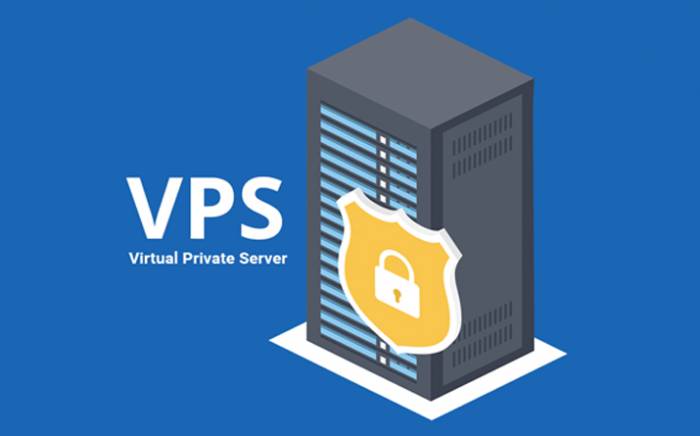Are you interested in learning about the essential advantages of having a virtual private server (VPS)? Not sure which web host is best for your needs? Here are a few things to consider.
If you do a quick search on Google for “web hosting,” you’ll come up with a long number of options for cheap shared hosting. As a result, most people will choose one of these outcomes since they are uninformed that better options are available for their firm. When a business’s website gets hacked, or if it works poorly or is entirely taken down by hackers, the company owner is left feeling frustrated and disappointed. With BlueVPS.com, you can expect the best options.

According to skilled developers, busy businesses should not utilize shared hosting. The best candidates for this hosting service are private websites, educational websites, and non-profit organizations of various sizes. Most businesses might benefit significantly from using a virtual private server (VPS).
The Hosting of a Virtual Private Server (VPS) May be Defined in Many Different Ways
One or more parent servers are used to host a cluster of virtual private servers (VPS), each of which has its own set of resources such as memory, disc space, and CPU cores. VPS Hosting is a virtualized hosting solution. However, shared hosting uses resources shared by hundreds, if not thousands of other customers’ sites.
Precisely What Does it Mean to Run a Virtual Private Server?
Near-instant scalability and flexibility are two of the many advantages of hosting on virtual private servers (VPS). One of the most cost-effective online options accessible today, VPS hosting may provide your next web project a competitive advantage if you utilize it correctly.
Virtual Private Server Hosting has several advantages compared to traditional hosting.
If You Don’t Want to be a Victim of the “Loud Neighbor Syndrome,” You Need to be Careful
It’s like living in an apartment building when comparing shared hosting to VPS hosting and dedicated hosting. You may find it difficult to sleep if you have a neighbor who plays loud music all night long. A sudden increase in resource use by a client on the same shared server might cause your website to encounter slowdowns or perhaps go down altogether.
Hosting on a VPS is like having an apartment in the city. It doesn’t matter if you don’t share any walls with anybody else. Your next-door neighbor is close enough to keep you awake if they turn up the music to maximum level. If you want greater privacy, you’ll have to fork up a bit more cash. Virtual private servers (VPS) allow users to use the same physical server, but they do so on a separate, more secure hard drive area. An experienced VPS provider like Liquid Web can find and fix any server resource issues before negatively affecting your business.
Dedicated hosting is more expensive when compared to VPS. To put it another way, it’s like having a house on a bit of a farm with plenty of room to roam. With a dedicated server, you are the only user of the server and have complete access to all resources.
The Project’s Specific Resources
This is another benefit of VPS hosting, which allows you to dedicate all of the server resources only to your business. A VPS (virtual private server) usually offers more power and flexibility than shared hosting. No other customers will be able to use the CPU, RAM, disc space, or bandwidth.
As a result of this, Your website’s speed will be affected by how much of the server’s resources are being used by other sites at any one time when utilizing shared hosting. A common pitfall of shared hosting providers is their inability to set up the server so that it will function with a wide range of website setups.
It’s possible to customize a virtual private server (VPS) to work better for your website. Because of the highly personalized settings, using managed VPS immediately provides a firm with hosting benefits such as enhanced performance.
Accessibility and a Feeling of Value
The cost of a VPS is more than that of shared hosting, but it is far less than that of a dedicated server. VPS hosting at Liquid Web isn’t significantly more costly than the bulk of shared hosting plans. A virtual private server (VPS) provides much more value than shared hosting, especially when considering managed VPS hosting.
Access and Information are Tightly Controlled
The software and apps installed on the servers of people who use shared hosting services are mainly outside the control of those people.
Those that rent VPS hosting will benefit from the fact that they will only be running the services that they need. Consider, for example, disabling or even deleting services like Bind or webmail programs before installing them if you know you won’t be utilizing the server’s email functionality. With Liquid Web, you’ll have complete control over your VPS’s configuration, thanks to root-level access.
Flexibility is the Sixth Quality
You must have the ability to extend your server capacity to handle unexpected surges in traffic, such as during Black Friday sales. It’s very uncommon for a shared server to grind to a halt when other sites on the server are suffering the same problem. It’s also possible for VPS servers to quickly and effectively increase the number of resources available to your site, enabling you to retain your present quality of service while taking on more traffic.
Increased Security Measures
You have to face it: shared hosting is among the least secure of the alternatives out there. Shared hosting providers are not to blame for this problem. There is a lot of work put into patching and maintaining a secure environment by most shared hosts.
The disadvantages of a virtual private server, on the other hand, are entirely absent. A server with fewer root (admin) users (and hence fewer customers) has several benefits. As a first step, this implies that fewer people have access to information that others may abuse. The use of virtualization technologies to isolate client information from other users is another advantage of VPS hosting. Due to the reduced number of settings on a VPS, security measures like web application firewalls (WAF), spam filters, and other security installations may be more stringent than on a shared server.
The Capacity to Change One’s Mind
For example, a virtual private server (VPS) may be used to run email and project management applications and games. Because of the high resource demands of large multisite networks created by WordPress multisite, a shared server will eventually crash if you use it.
The Independence of the Operating System and the Software
Many shared hosting services do not allow you to run particular software programs. For example, most don’t allow streaming software or gaming servers to be used.
In most cases, you have the option to install your preferred operating system on a virtual private server. Ubuntu, Cloudlinux, and Debian are some of the best-operating systems available. In the same way, the server software is included in this group.
Scalability Over the Long Term is Critical
As your company expands, you will definitely need more resources for your website, which will result in higher website costs. With a virtual private server (VPS) from Liquid Web, you can simply and rapidly scale up to a more significant VPS or even an entire bare metal server.






































